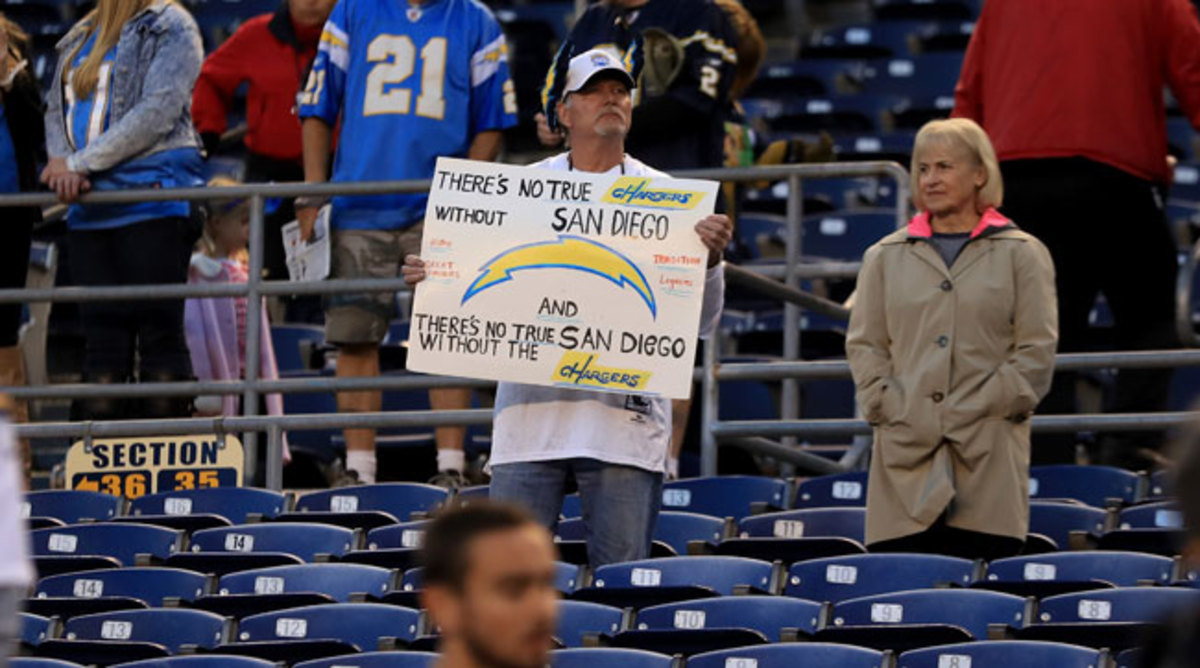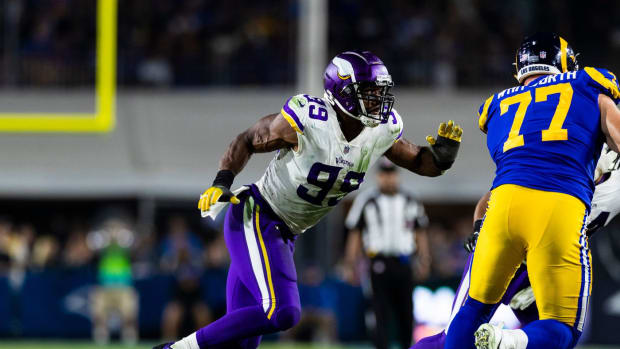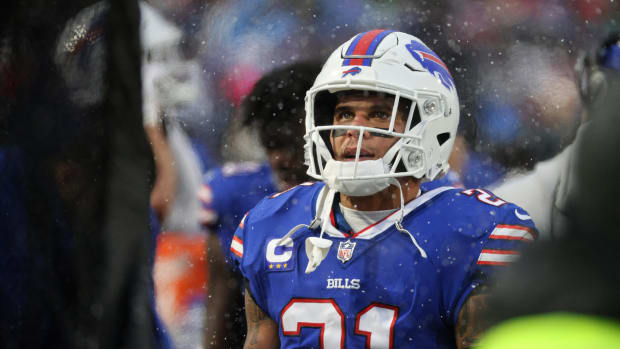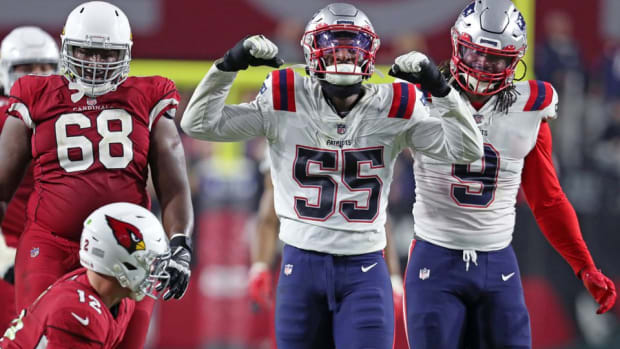
The Five Myths of NFL Relocations
Before going behind the curtain on the Chargers’ move to Los Angeles, I would be remiss to not mention the recent brilliance of longtime friend and former colleague Aaron Rodgers. As I say often, a surprising number of franchise-defining decisions happen by circumstance or the inaction of others. Sitting in the Packers’ draft room in 2005, we certainly did not intend to draft a quarterback (we had the most durable QB in NFL history, Brett Favre). However, the top-rated player on our draft board was Rodgers (our other position player targets were all gone) and no one had taken him. Even then, as I got Aaron’s agent on the phone, we waited 10 excruciating minutes to see if someone would call with a trade offer. Crickets. Now the best player in the sport, always making the impossible seem routine, simply fell into Green Bay’s lap.
On to the Chargers…
The transformation of the San Diego Chargers into the Los Angeles Chargers (a year to the day after the St. Louis Rams became the Los Angeles Rams) is yet another sign of the fact that the business of the NFL is the NFL; the games are just the storefront. Now, with the potential relocation of the Raiders to Las Vegas gaining momentum, there may be three NFL home fan bases left in the lurch over a 14-month period. Beyond the visceral reactions of anger toward the owners’ greed and disregard for the fans, I thought it important to clear up five myths about franchise relocation and the business of football.
Myth #1: Fans truly matter
Stadium negotiations in the NFL occur between the league/owners and city/county/state politicians. Not included as party to those negotiations are the fans. Sure, all sides profess to be concerned with fans and appreciate their support (thanking the fans is Public Relations 101) but these negotiations are all about “the deal”—which side pays for what and when—more than anything else. Remember how much coaches complain about the offseason restrictions of the CBA? Well, those negotiations were between the owners and players; coaches weren’t consulted. Similarly, fans are not party to stadium negotiations; their best interests are far down on the list of deal priorities.
Myth #2: Ticket sales truly matter
The Chargers decision on venue over the next two years—a soccer stadium with fewer than 30,000 seats—tells us what we need to know about the importance of ticket sales in the revenue chain. This is not your father’s NFL: ticket revenue is nice but not what it used to be in the landscape of team revenues. The Chargers and Rams’ move to L.A. gives them access to numerous more “premium product buyers,” as the NFL calls them, than either team had in St. Louis and San Diego; they’ll also eventually add hundreds of millions to their bottom line from ancillary revenue opportunities. Suites will sell out; franchise values will soar. As for empty seats, that certainly won’t look good, but in the owners’ and league’s eyes, that is a risk worth taking.
Myth #3: “Solution” = Self-funding
In their comments upon leaving San Diego behind, both the Chargers and Roger Goodell stated that, despite many years of trying, they were unable to find a local “solution.” That appears a euphemism for, “They didn’t show us the money.” To be fair, the Chargers did invest significant time and money into seeking “solutions” but, of course, there was no “solution” that would have unlocked hundreds of millions of public money towards stadium subsidies. Could either the NFL, Rams’ owner Stan Kroenke, and/or the Spanos family have put up more of their own money to keep the Chargers in San Diego? In theory, the answer is yes, but that is not the way the business of the NFL has worked.
Speaking of which…
Myth #4: A next frontier?
Over the past two decades, NFL owners had used the lack of team in Los Angeles as leverage in negotiations with local politicians towards a “solution.” With L.A. no longer a potential negotiating tool, what other cities could fill that role? The Raiders’ flirted with San Antonio before focusing on Las Vegas, although it is hard to see that as a viable alternative. Toronto had mixed results hosting Bills games. London continues to sell out, but I have always predicted, at most, an eventual home schedule there: eight games a year over three stadiums, every team playing there every other year. Interestingly, one city that I have not heard a word about potential relocation in the past year is St. Louis, a negative omen for San Diego. There appears no obvious stalking-horse city for owners to leverage a potential move.
Myth #5: Revenue isn’t the most important thing
Having sat in NFL meetings for a decade, I heard a continuing theme to not become complacent in maintaining their perch as the most popular and profitable sports league in the country, and to constantly be in search of additional revenue streams. Indeed, last year’s decision to award L.A. stadium rights to Kroenke was a testament to thinking bigger than a “stadium.” Revenue generation and brand enhancement were best served by having another “JerryWorld” in L.A., a place to host Super Bowls, drafts, combines, Final Fours, World Cup matches, etc. And elevated franchise values of the Rams and Chargers will raise the overall value of the NFL brand. Goodell spoke a couple years ago of an annual revenue goal of $25 billion by 2027; that drives the league and its “member” owners. Now with an annual revenue number of approximately $13 billion and growing at roughly $1 billion a year, the NFL is well on its way.
* * *
Five Final Thoughts
On the almost completed the head-coach hiring cycle (only the 49ers remain):
1) So Tom Coughlin is joining the Jaguars in an executive role along with an existing general manager and an incoming coach just elevated from interim status, neither of whom Coughlin has worked with before. What could possibly go wrong?
2) Full disclosure: I have known Sean McDermott for some time, worked with him when I consulted with the Eagles, and talked to him in this hiring process. Having said that, the Bills got a gem. Sean is smart, self-motivated, even keeled and driven to succeed. And he will.
3) From a pure coaching point of view, I don’t think the tender age of Rams new coach Sean McVay is an issue. Age is just a number. I do wonder, though, if a 30-year old has enough life experience (not coaching) to manage a football operation. Whether he does or doesn’t, he will get that experience soon enough.
4) McVay’s tenure will be closely aligned with the development of Jared Goff. While Carson Wentz was swaddled with coaches skilled in quarterback development, Goff was not. That will change as McVay will be charged with putting Goff in positions to succeed.
5) Spinning back to the L.A. relocation, the new coaches of the Rams (McVay) and Chargers (Anthony Lynn) have two-year runways to build their programs before the product truly “matters” when they move into the splashy new stadium in 2019.
Question? Comment? Story idea? Let us know at talkback@themmqb.com




































